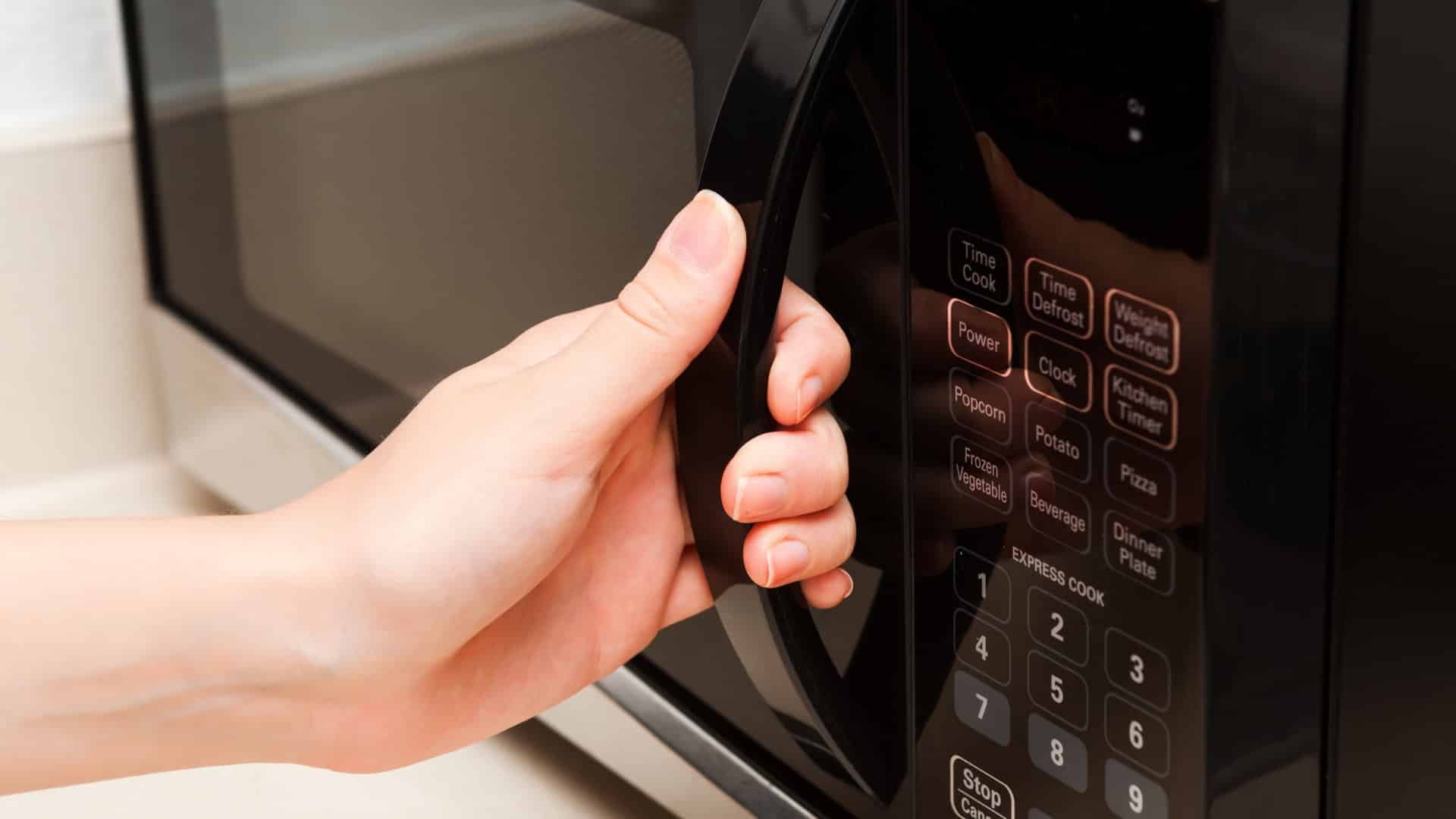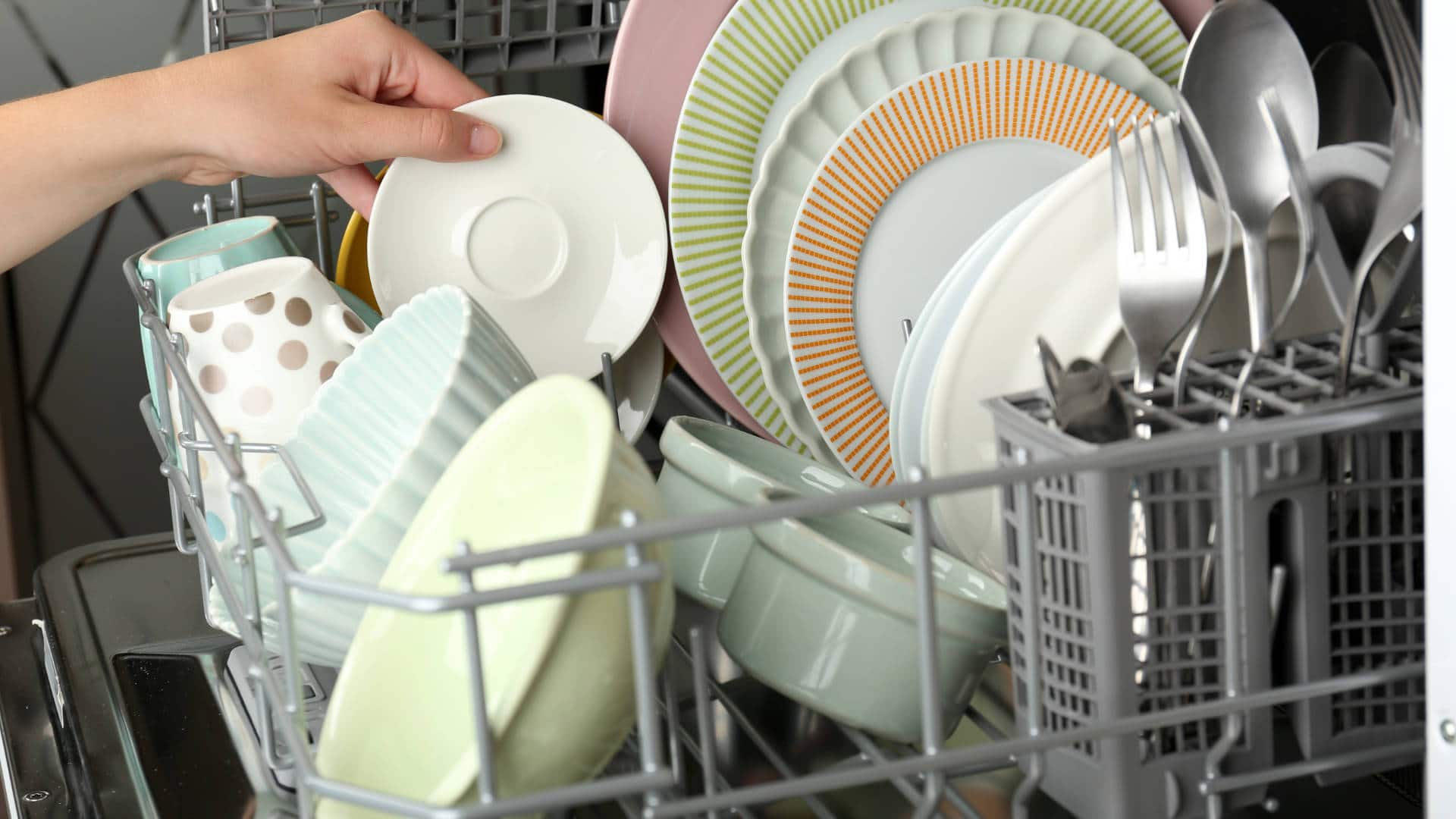
Dishwashers are found in most homes these days and are one of the most used home appliances. When they break down, it can be both annoying and time-consuming because you have to revert to washing your dishes by hand.
In this article, we will cover the 8 most common problems people have with their dishwashers and how to fix them. Some of these dishwasher problems can be fixed by yourself, but for some, you will need to call a qualified technician to fix them for you.
Let’s get started.
1. Dishes Come Out Dirty
If dishes are coming out dirty after a wash cycle, start by making sure that you’re not overloading the dishwasher or stacking it incorrectly. When this happens, water that comes out of the spray arms will not be able to wash your dishes properly. You also need to make sure that you’re scraping all the big food debris off the dishes before putting them into the dishwasher.
Next, check that nothing is obstructing the spray arms and that they are not dirty. To do this you need to remove all the spray arms from the dishwasher and give them a good clean before putting them back in again.
Once you’ve cleaned the spray arms, you should check the filter for any blockages or loose debris, as this can stop your dishwasher from draining, which means your dishes will be cleaned with dirty water.
Finally, if your dishes are coming out with water spots, you should fill up the rinse aid compartment which will stop this from happening.
2. Dishwasher Leaks
The next common problem people have with their dishwashers is when they start to leak. This can be dangerous, as it can result in you slipping. To fix this problem, start by checking the dishwasher door and gasket. If you find any cracks or other damage, the door gasket will need to be replaced. If there are no cracks, give the gasket a good clean – making sure you get into the hard-to-reach spaces.
If the door is ok, then the next common cause of leaks is a faulty float switch. The float switch monitors how much water is in your dishwasher, and when it becomes defective, it can cause too much water to enter the dishwasher, some of which leaks out. To check the switch, you can first check that nothing is obstructing it and remove any obstructions. Then you will need to check it with a multimeter to see if it has continuity; if you don’t have one, you’ll need to call a qualified technician.
3. Dishes Don’t Dry
The next problem is when dishes don’t dry. The first thing to do is check that your dishwasher has rinse aid in it, and if not, fill it up. If the rinse aid is ok, the problem is probably caused by a malfunctioning heating element or high-limit thermostat. The heating element heats the water, and the high-limit thermostat stops the dishwasher from overheating. When either of these components is faulty, your dishes won’t dry.
To test these components and then repair them if they are faulty, you will need a multimeter to test them for continuity. If you don’t have a multimeter, you will need to call a technician to test them for you.
4. Dishwasher Smells
If your dishwasher starts to smell, it is most likely the result of food debris in your dishwasher. To fix this problem you will need to give your dishwasher a good clean and empty the dishwasher’s filter that is at the bottom of the dishwasher.
It is also possible that a plastic container or piece of plastic has melted onto the heating element, which causes a chemical smell to come from your dishwasher. To fix this problem, you need to remove the plastic container or loose piece of plastic from your dishwasher and clean the element if it has plastic on it.
5. Dishwasher Won’t Start
If your dishwasher won’t start, it is likely the result of a problem with the power source. To fix the problem, start by checking the circuit breaker and that you haven’t blown a fuse. You can also test your dishwasher in another power outlet to eliminate that as the cause of the problem.
Next, check that the door is opening and closing properly. If the door latch is stuck, your dishwasher might not be able to start. If you can’t open the door, you will then need to open it by manually dislodging the latch and then getting a technician to fix it.
If the door is fine, it could be a faulty motor causing the problem, especially if you can hear the motor trying to start. Fixing the motor is a much more difficult repair that will require a qualified technician.
6. Dishwasher Isn’t Draining
The next common problem people have with their dishwashers is when they won’t drain. When this happens, your dishwasher will likely leak water onto the floor when you open the door. If your dishwasher turns off mid-way through a cycle, you can empty it by turning it on to another cycle, and it will drain out.
If the power didn’t go out during the cycle and you have a garbage disposal unit, you should run the disposal to empty it out. This is because the dishwasher usually drains out through the same drain as your garbage disposal uses and can sometimes get clogged, which prevents your dishwasher from draining. If you recently installed your garbage disposal unit, make sure the drain plug has been removed.
It can also be caused by a clogged drain filter, so check that it isn’t full of debris. If it is, you’ll need to empty it out and give it a good clean.
7. Dishwasher Making Loud Noises
If your dishwasher is making loud and/or strange noises, they are likely being caused by a faulty or obstructed internal component. Start by checking that the spray arms aren’t bent out of shape or loose (which can cause them to hit the dishes). Next, the seals and the bearing rings will need to be checked, as sometimes they can become worn out, and this causes rattling noises. If the noises are not caused by those components, you’ll need to get a technician to look at harder-to-fix components, such as the motor and the drain pump.
8. Powder Dispenser Not Working
If your powder dispenser is faulty, your dishes won’t wash properly and will come out dirty after a wash cycle. This problem is usually caused by the dispenser not opening or using too much powder. To fix this, you need to make sure the dispenser opens up, and if not, it will need to be fixed.
It can also be caused by loading your dishwasher incorrectly and having dishes block the dispenser from being able to open, so always make sure you don’t load dishes too close to the dispenser.
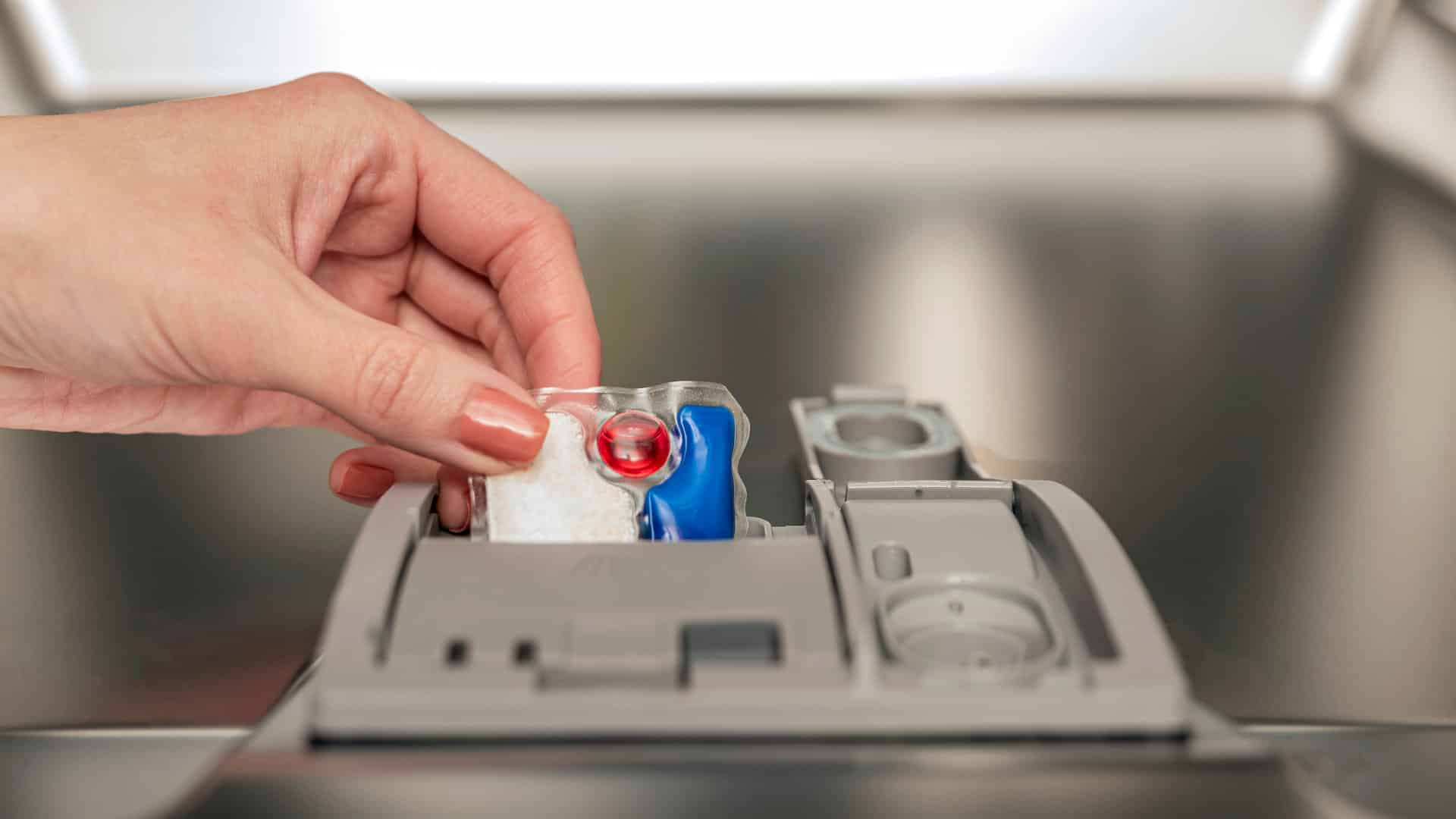
How to Clear E24 Error on Bosch Dishwasher
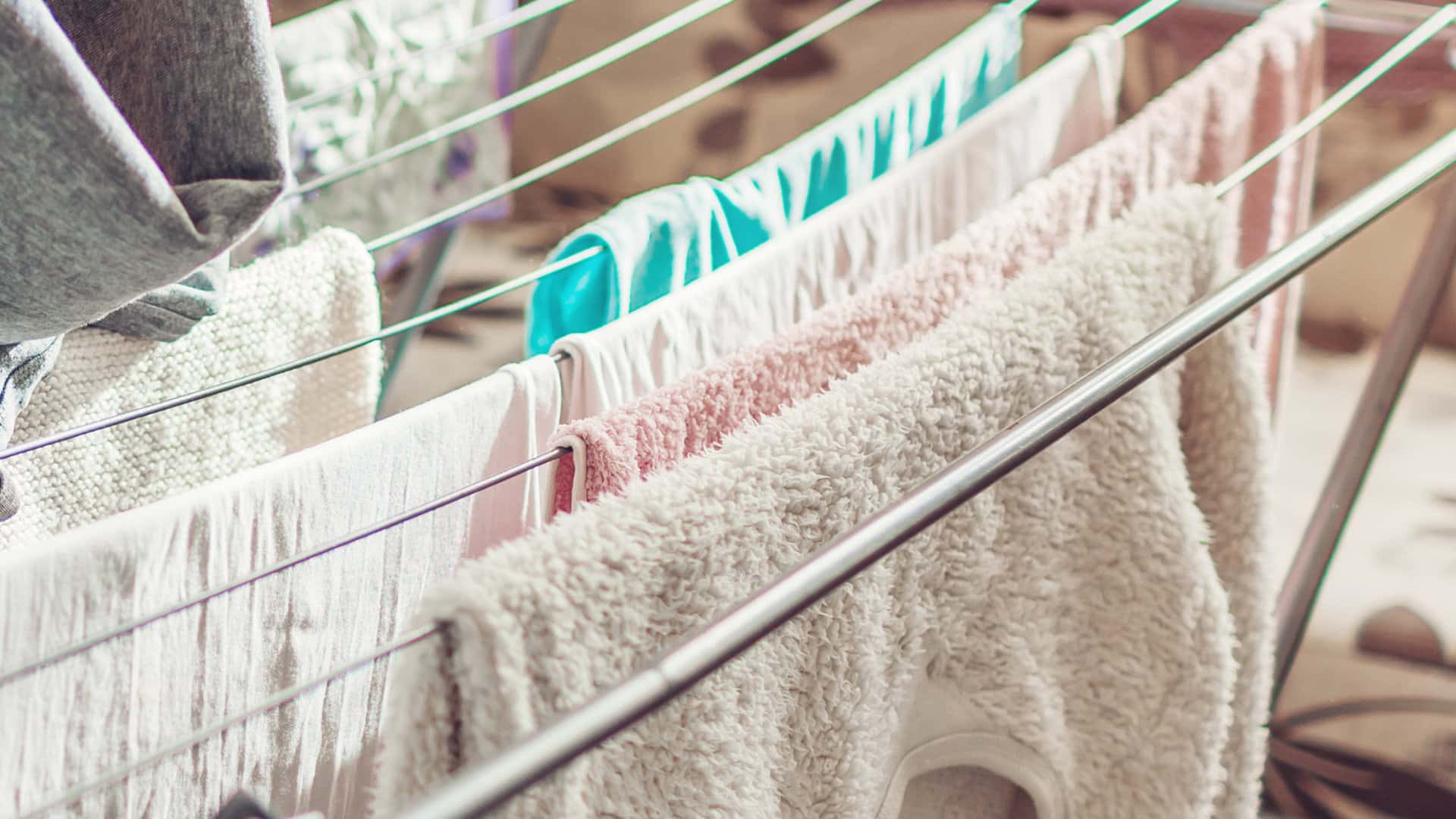
Samsung Dryer Not Heating Properly? (5 Fixes)
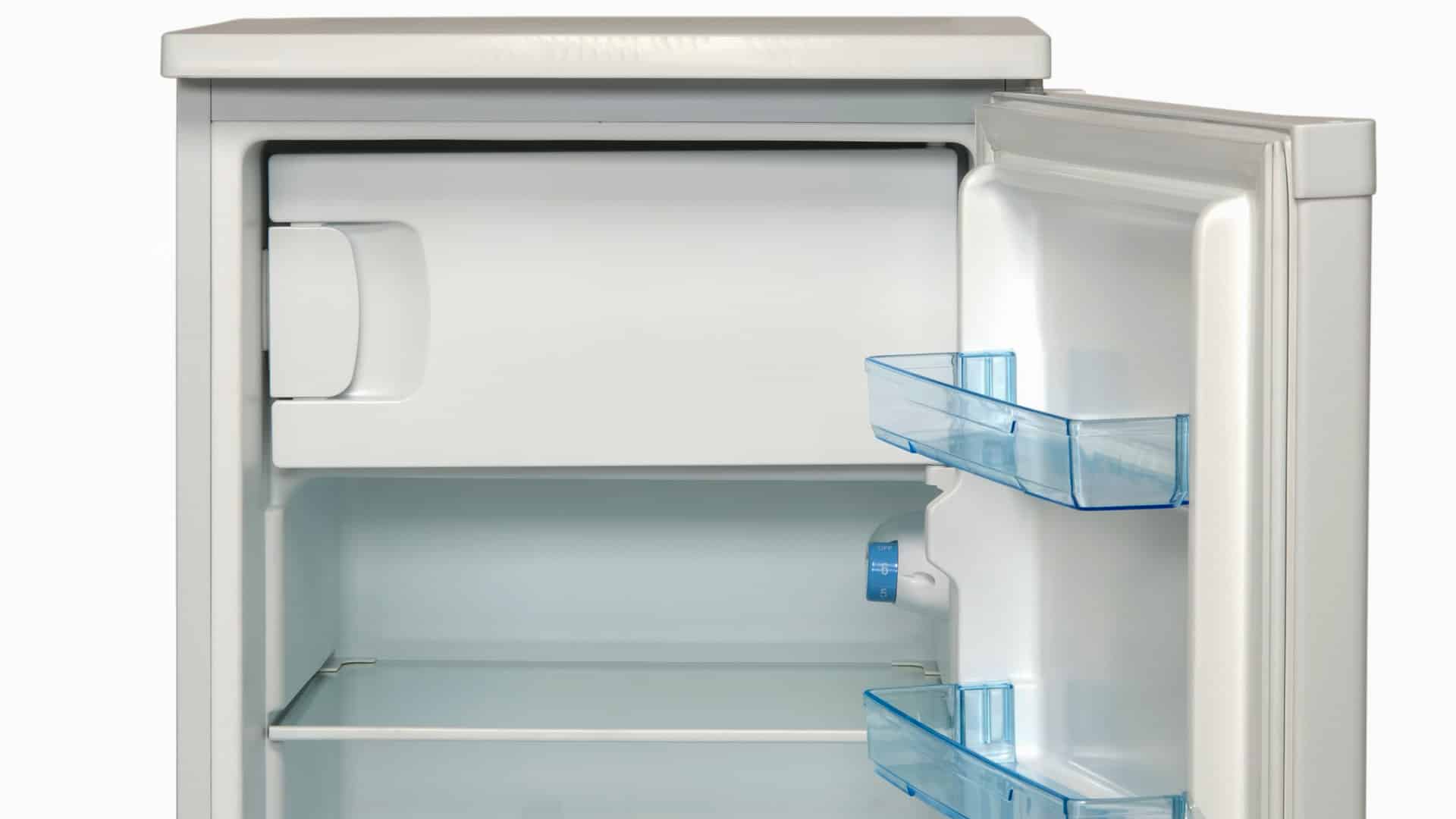
Why Is Your Mini Fridge Not Cooling? (5 Potential Reasons)
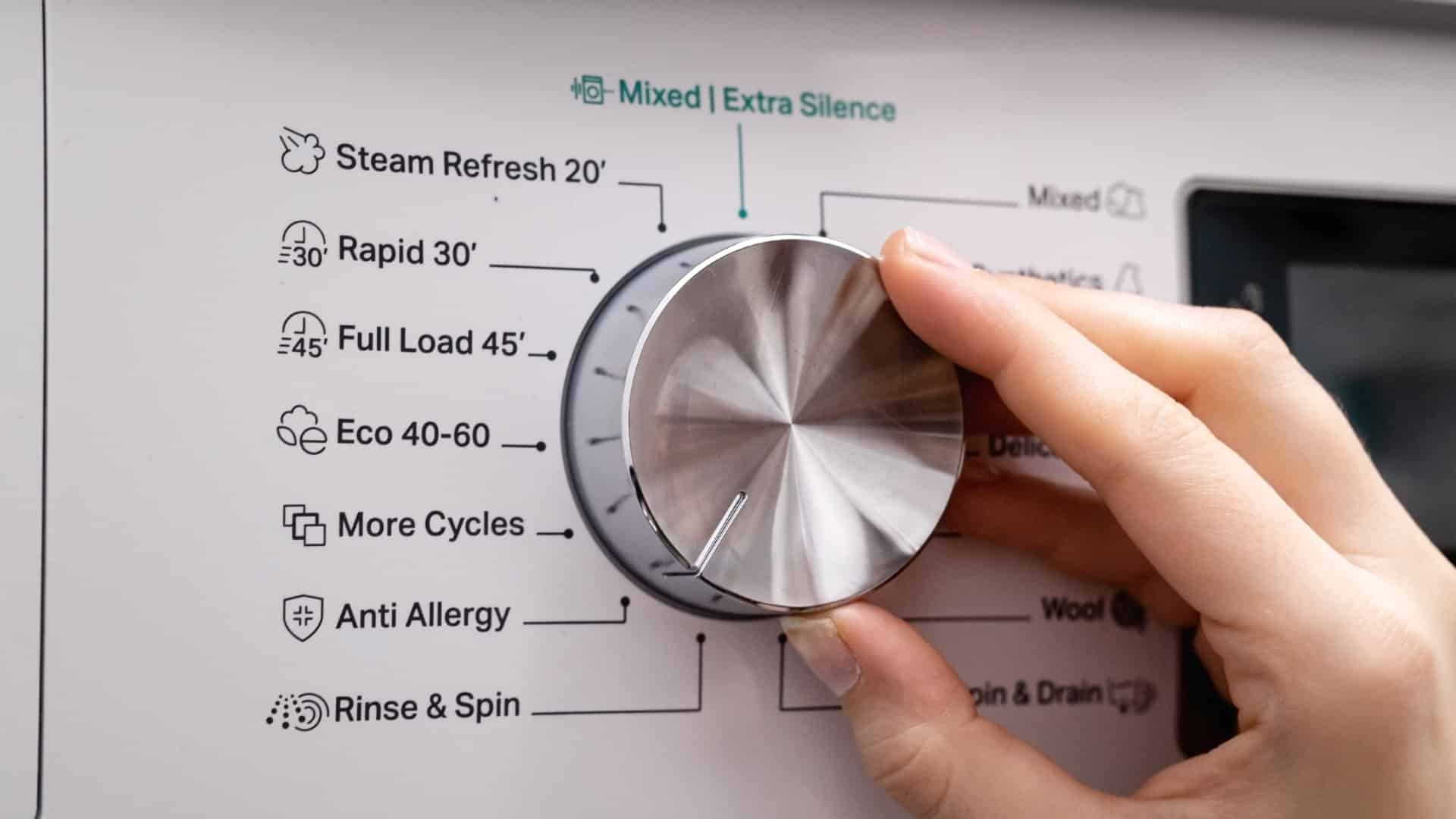
How to Fix Samsung Washer Error Code 4C
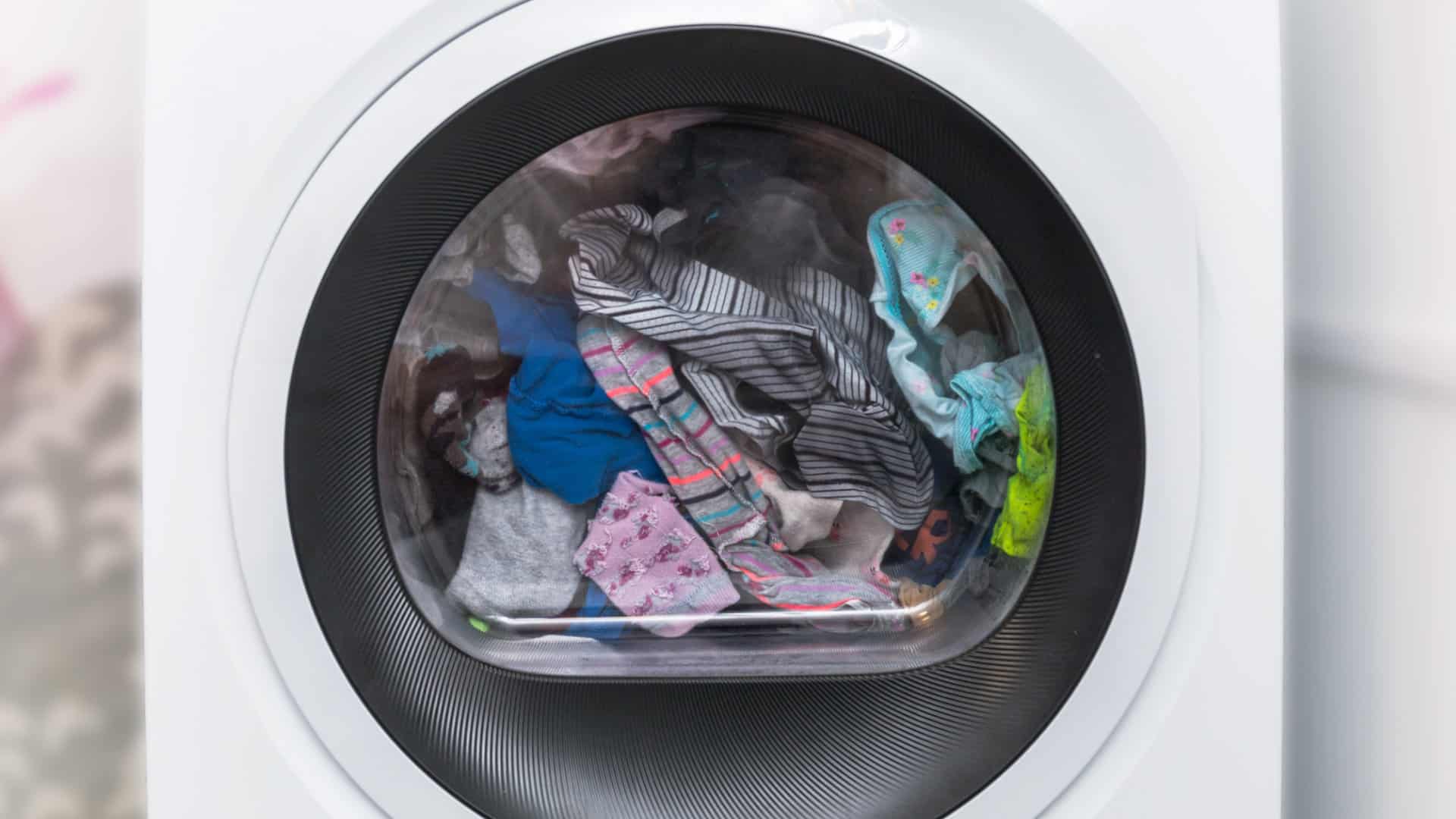
How to Resolve UE Error Code on your LG Washer
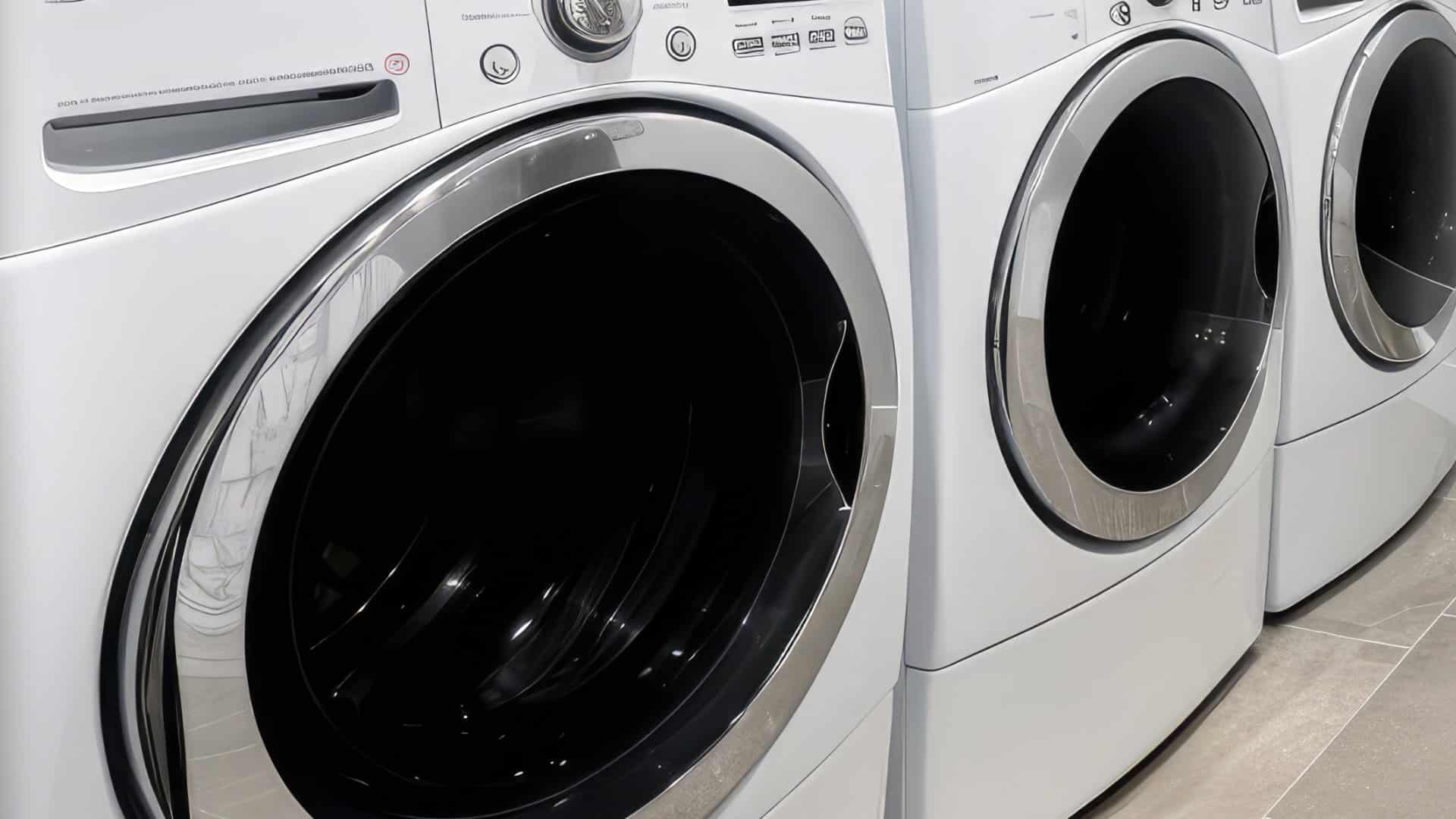
LG Washing Machine Error Codes: How to Fix Them
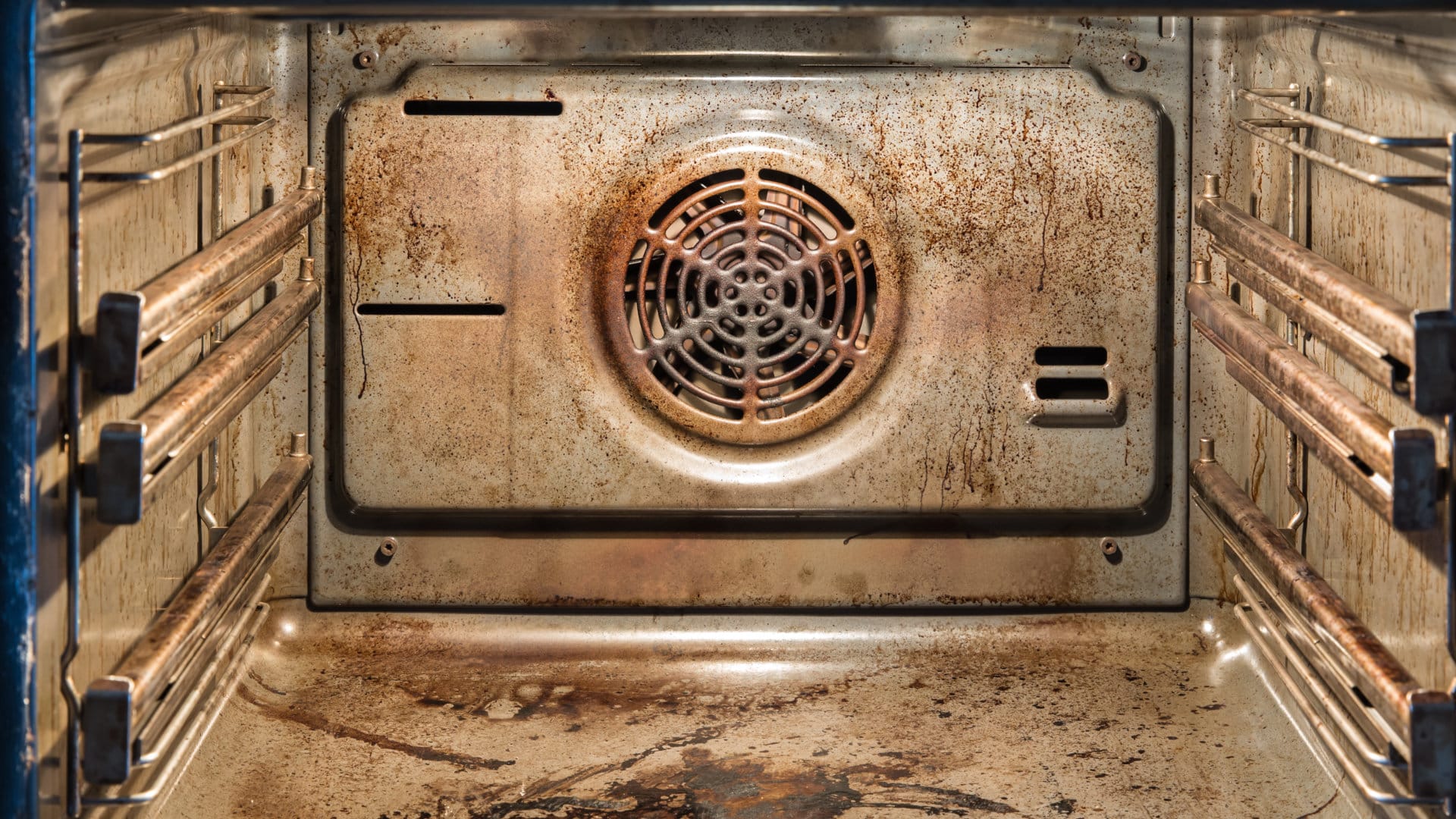
How to Unlock LG Oven Door (After Self-Cleaning)
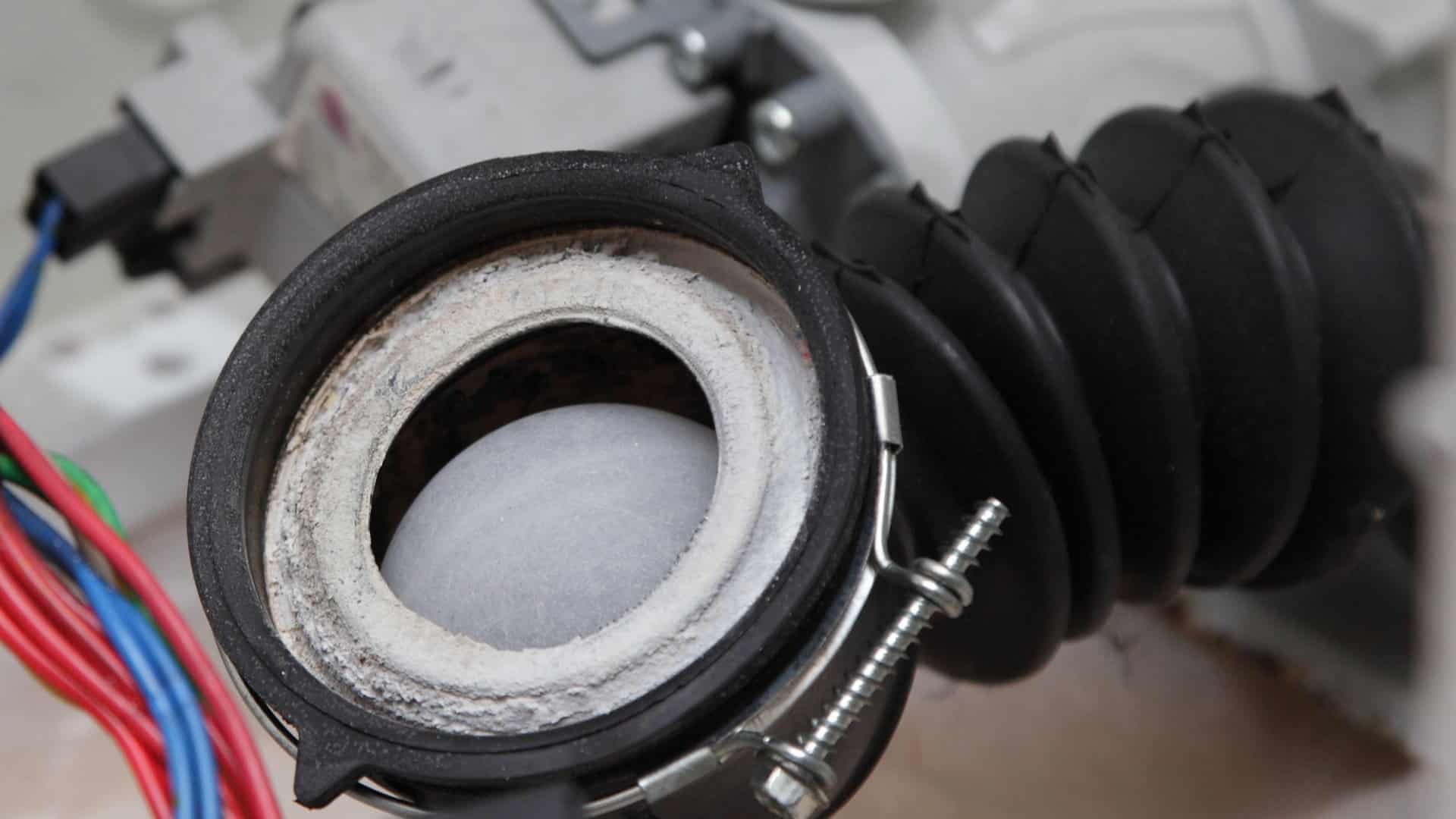
How to Fix LG Washer DE Error Code
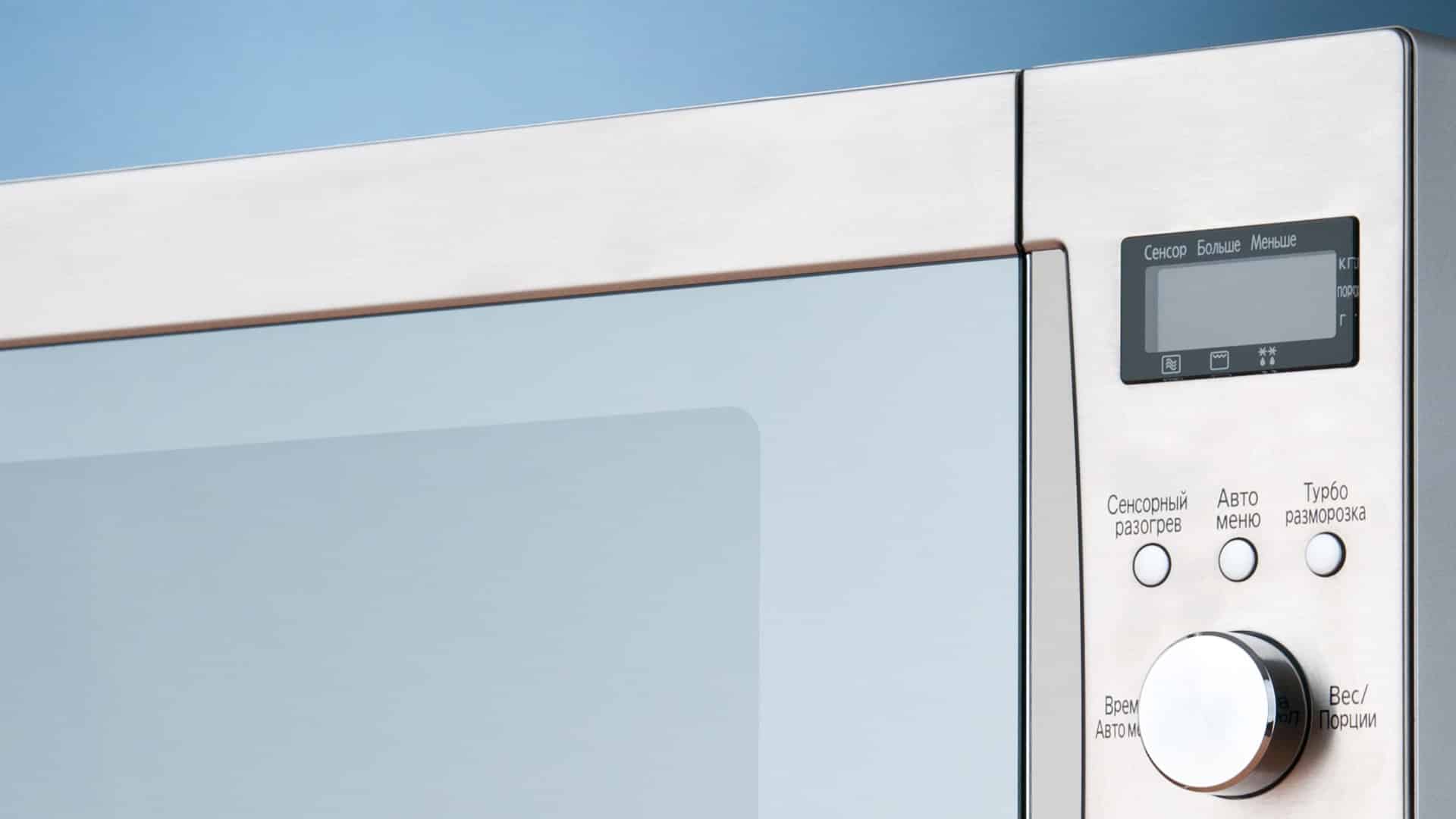
Why Your Microwave Is Not Working
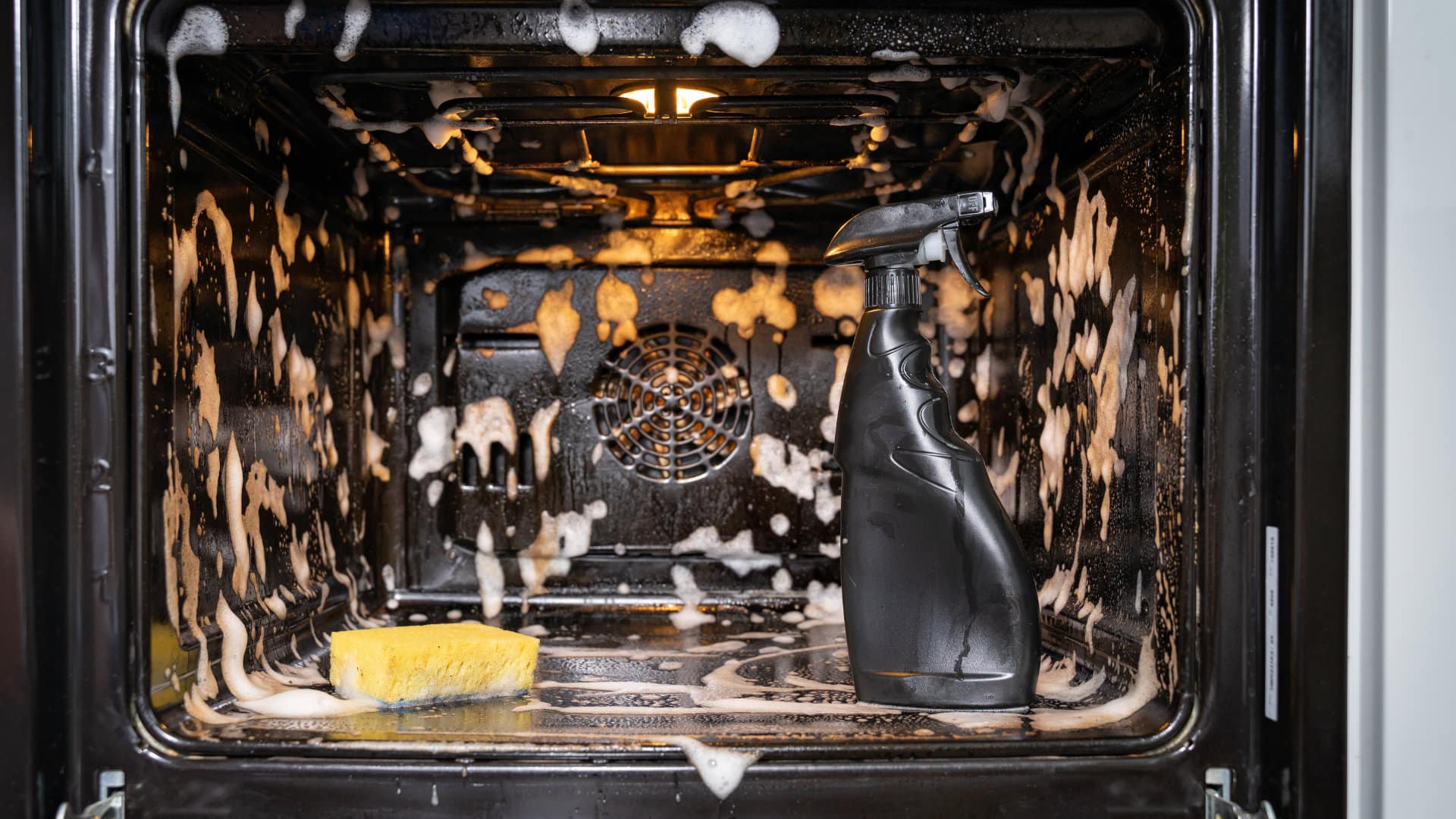
The Quick Guide To Using a GE Self-Cleaning Oven

How to Clean Your Dishwasher with Vinegar
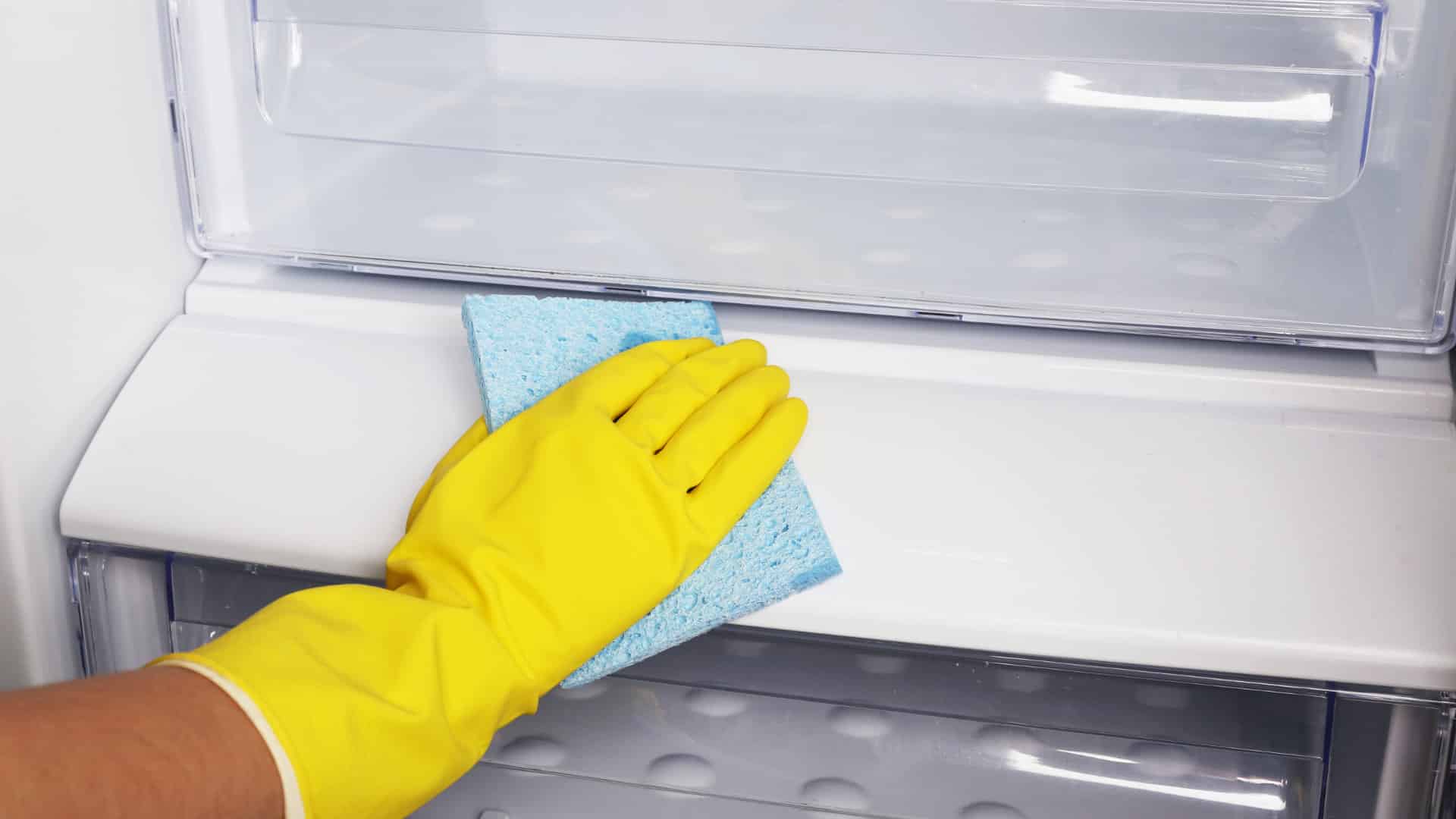
How to Fix a Noisy Refrigerator
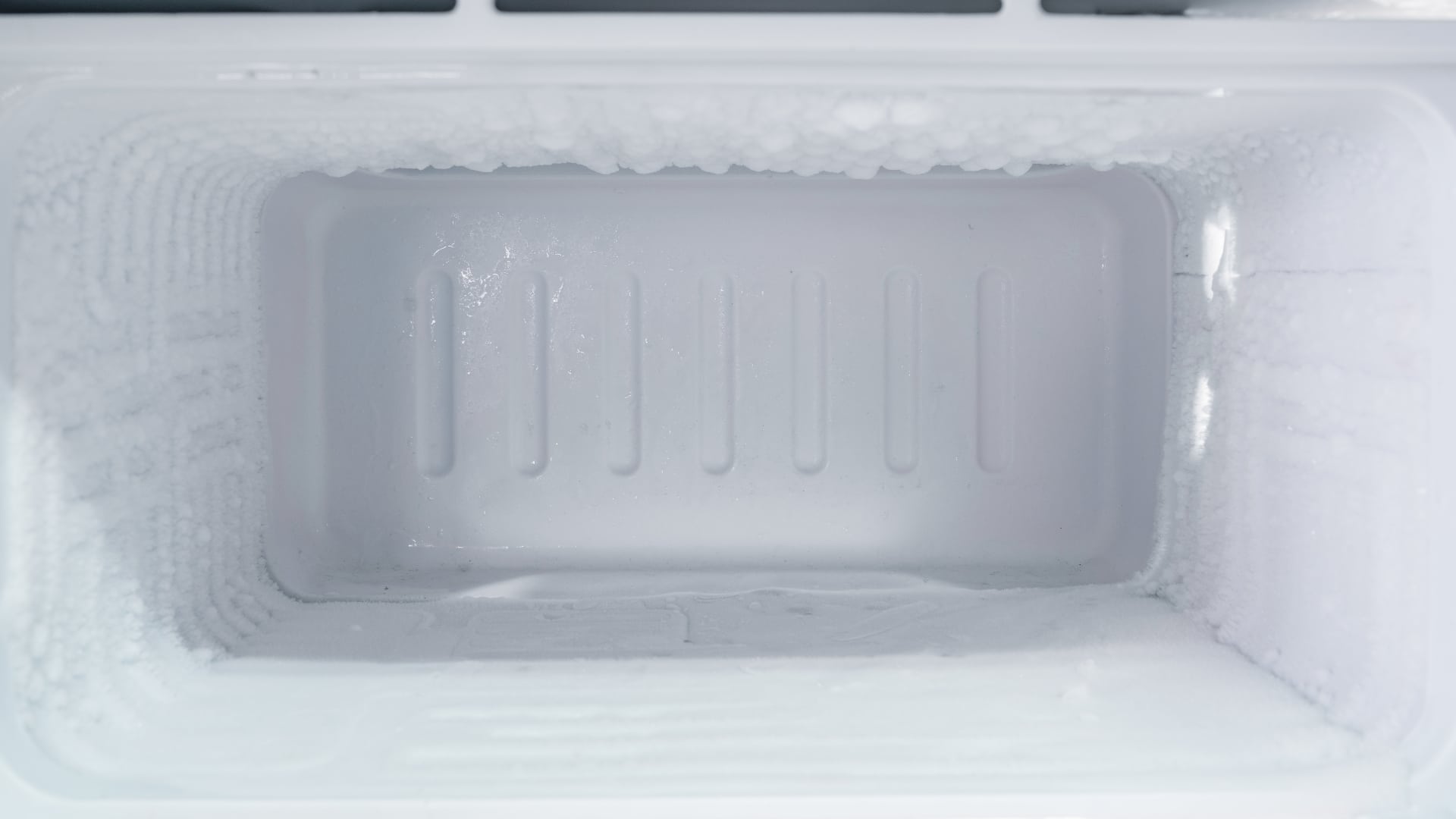
How to Remove Frost Build-up from the Freezer
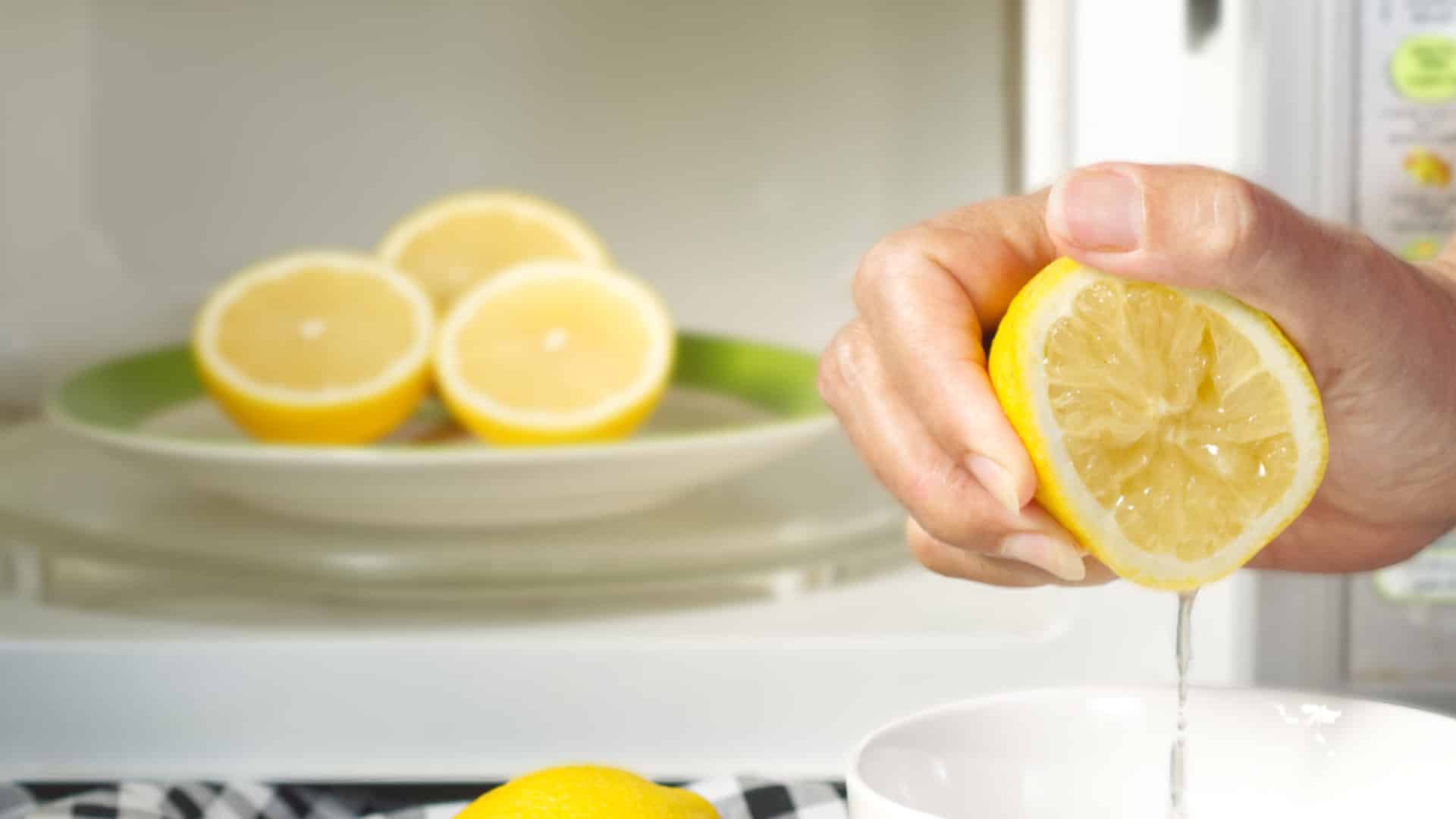
5 Ways To Clean Your Microwave Naturally
